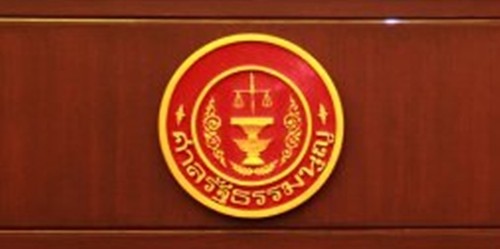The junta-appointed lawmakers have accepted in principle the Organic Act on the Constitutional Court which will protect the court from contempt and online criticism. Breaching the law can lead to up to one month in prison, a 50,000 baht fine, or both.
On 28 September 2017, the junta-appointed Constitution Drafting Committee (CDC) submitted the draft Organic Act on the procedures of the Constitutional Court to the National Legislative Assembly (NLA) for approval.
The NLA accepted the draft in principle with 198 votes in favour and three abstentions, and appointed a working committee to scrutinise the draft and report back to the NLA within 50 days.
This is the seventh organic law out of 10 that the CDC has drafted and submitted to the NLA. According to Meechai Ruchupan, Chairman of the CDC, the CDC has amended the draft in accordance with comments from the Constitutional Court even though they disagree on some issues.
Meechai stated the court requested the power to issue a suspension of all state agencies but the CDC rejected the proposal, reasoning that it is harmful for the country if the Constitutional Court is directly involved in administrative issues.
He further added that the new law will grant the court tools and mechanisms to protect itself against contempt and the court will be able to work even faster under the new law.
A day earlier, Udom Ratamarit, spokesperson of the CDC, argued that more protection of the court was necessary because, unlike the courts of justice, the Constitutional Court is currently not protected against contempt under the Criminal Code.
Article 39 of the bill sets out a penalty of up to one month in prison, or a 50,000 baht fine, or both, for people who make ill-intentioned criticism of the Constitutional Court, including those who post such criticisms online.
However, the broadening interpretation of what constitutes contempt has caused concern among legal circles. Legal experts argue that without a strict interpretation of what constitutes contempt, the integrity of the justice system is at risk.
“At some time when the court exercises its power, it may dare to do so without restraint, without fear of anything, because in the end, if anyone opposes or challenges the court, the court has a tool for dealing with those people,” Thammasat University law lecturer
Piyabutr Saengkanokkul posted on his Facebook account. “It can punish anyone in the name of the ‘law’.”

